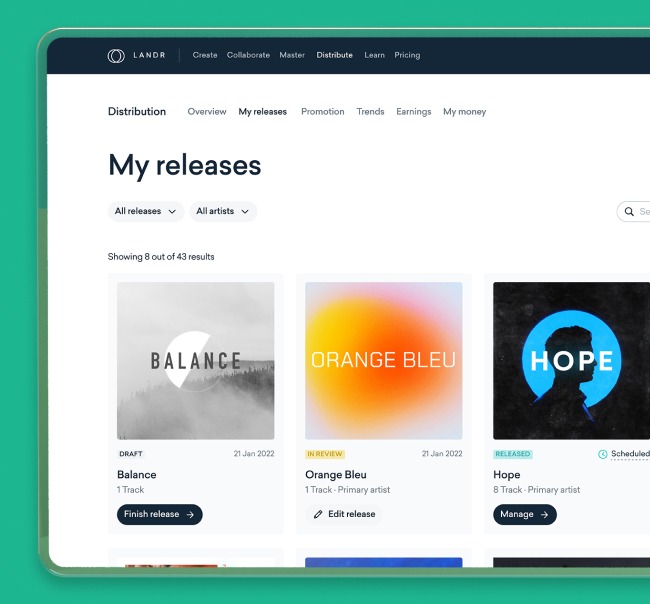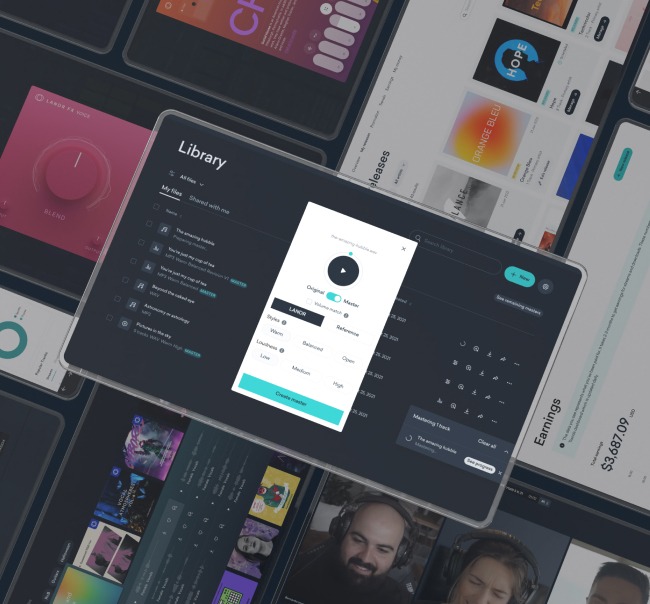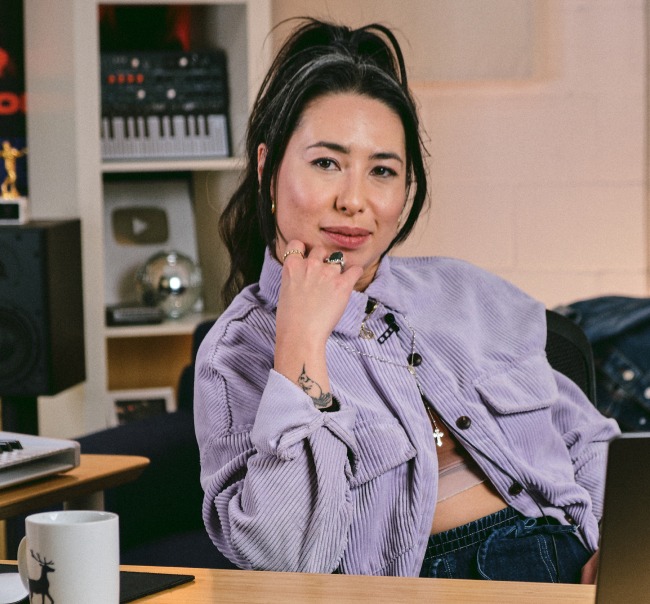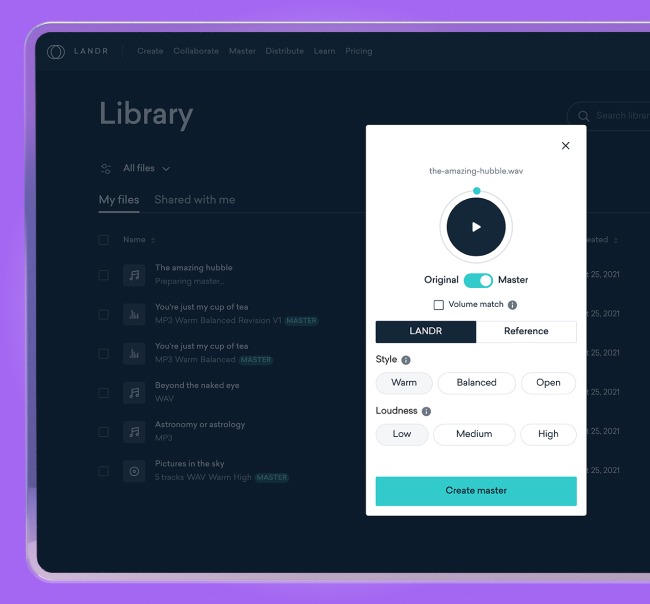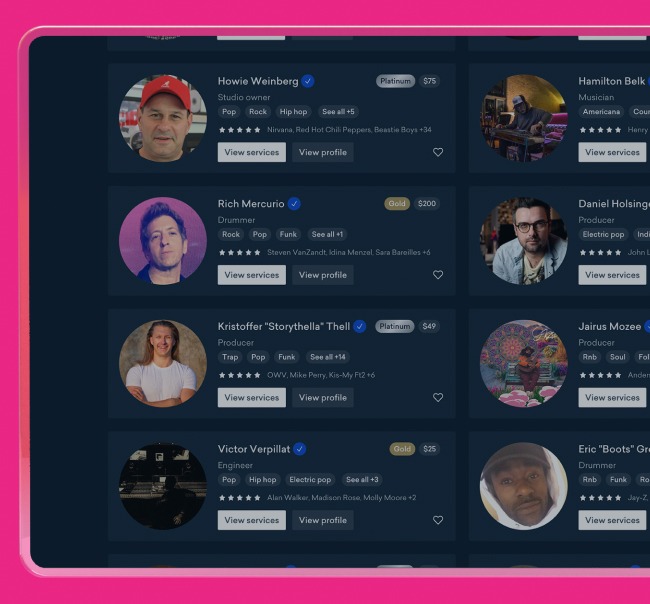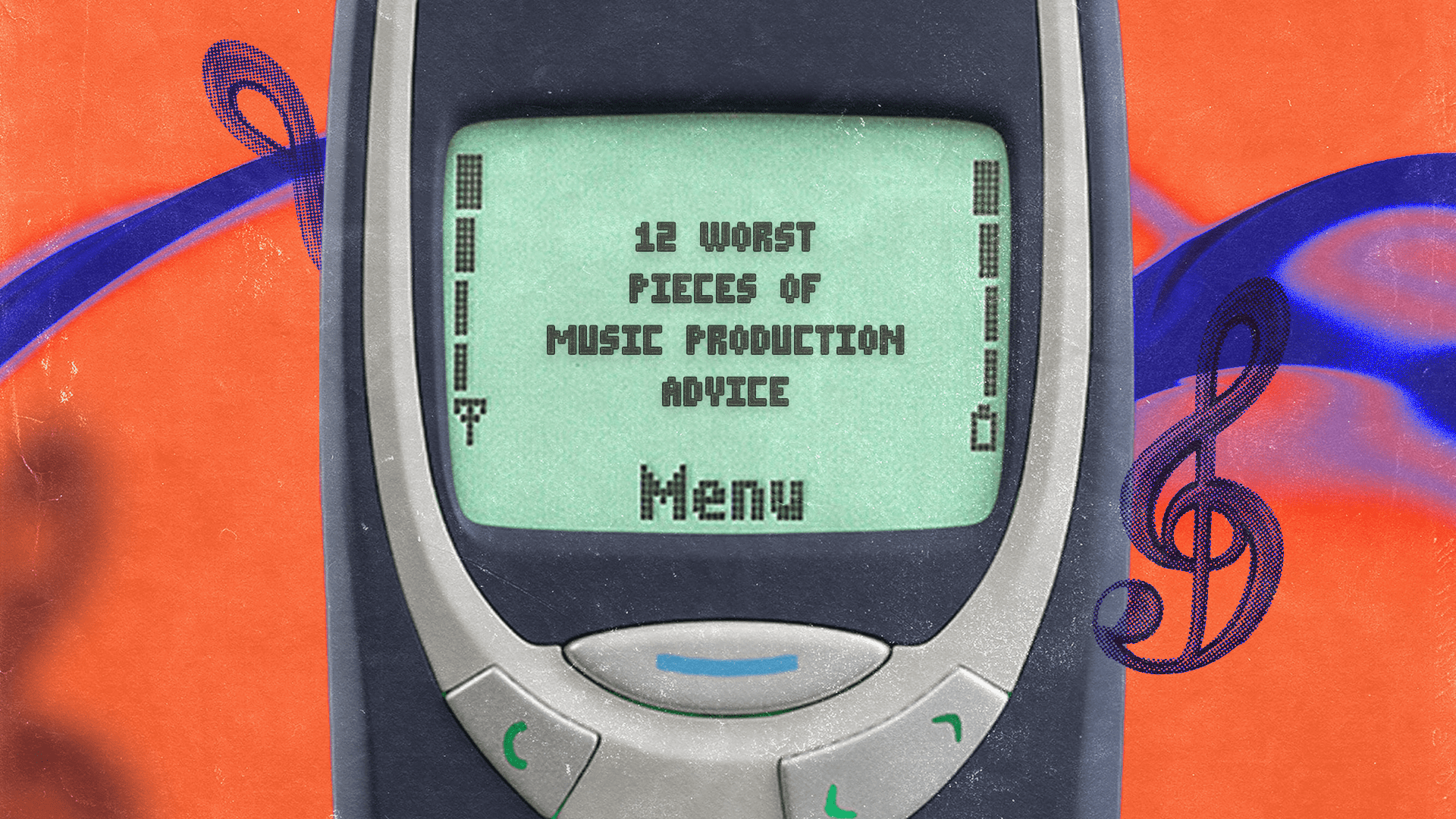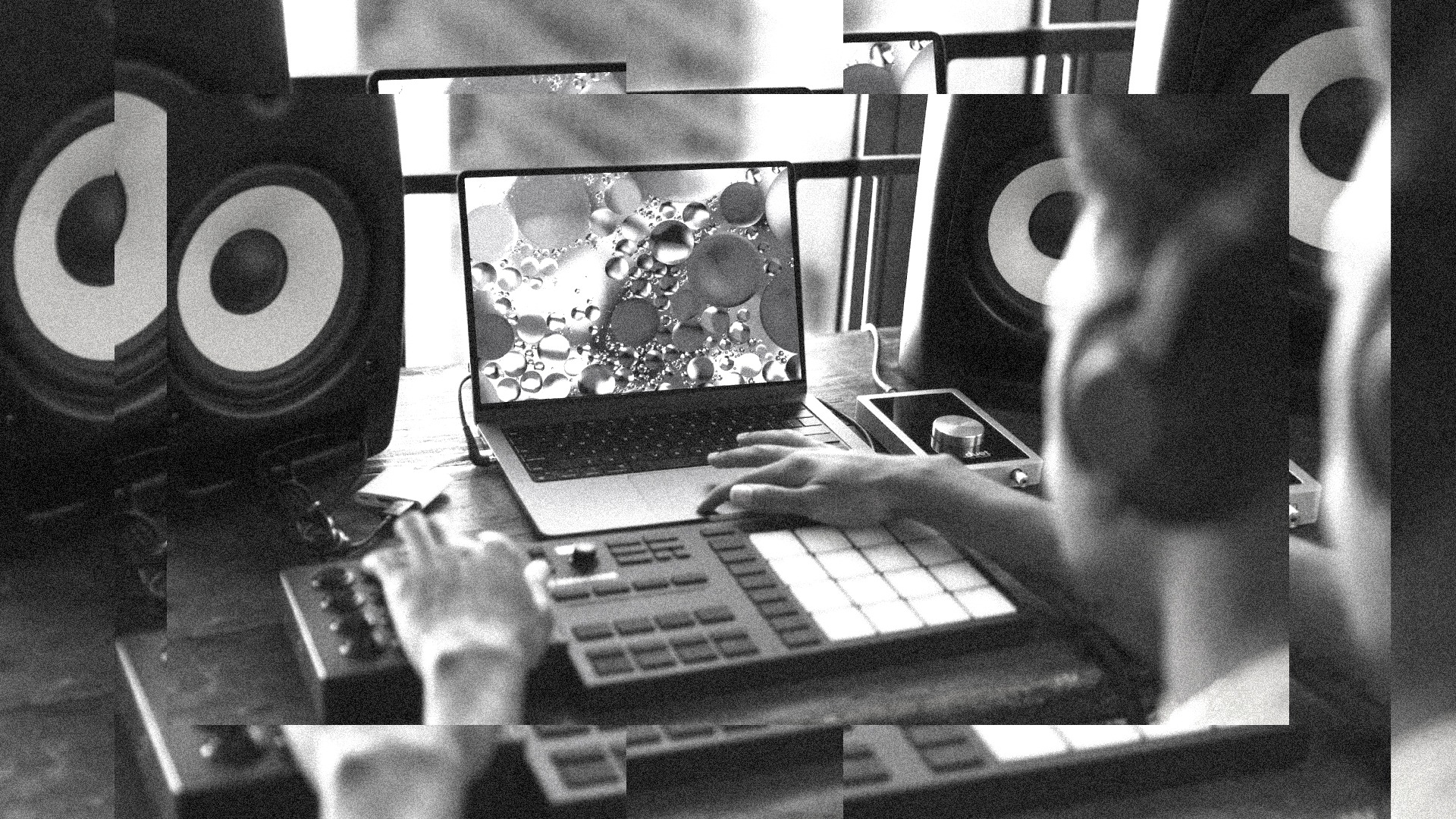
How to Start a Record Label in 2025 (Without Going Broke)

Starting a record label isn’t a totally crazy idea.
In fact, local independently curated labels are becoming more and more important. But, if you want to learn how to start a record label of your own there’s a handful of things to plan for and pay attention to.
In this article, we’ll unpack everything you need to know about starting a record label. From practical operations to marketing and design, to your overall branding strategy.
There’s a lot to be thinking about—but fortunately, we’ve got some expert advice and helpful tricks and tools to help you along the way.
Let’s get started.
Why start a new record label?
Let’s do some soul searching—starting a record label is no easy feat, so let’s make sure you’re getting into it for the right reasons.
Are you starting a record label because you want to make a lot of money really fast?
If so, you might want to manage your expectations. Making money with music is not impossible, but it takes a plan and dedication.
Unless you’ve somehow lined up some A-list talent and you have some serious marketing dollars, your label won’t be profitable for the foreseeable future.
Even with more and more top-tier artists staying away from major labels and opting to go the independent route, it takes years of experience and connections to land that kind of talent.
So, If that’s the case congrats! Stop reading this and get to work planning your rollout.
Your scene deserves to have someone representing it.
For the rest of us, money is not a reason to get into founding a record label.
That being said, let’s look at four (very good) non-monetary reasons to start a record label.
You love discovering and curating new artists and material
Maybe you’re connected with an undiscovered local scene. Or maybe you love spending your time digging around new releases on Bandcamp.
You know your taste is amazing and through your passion for under-appreciated music, you probably have some personal connections with many artists.
If you want to elevate your favorite artists and help them potentially find a bigger platform for their art, starting a record label is an excellent and totally righteous way to do that.
Your scene deserves to have someone representing it—so why not take up the burden and help give the yet-to-be-discovered artists in your world some well-deserved attention.
It’s so rewarding to be that special supportive presence in a music scene, whether online or in person.
You need a central platform to publish your own art
If you create and collaborate under a variety of monikers or in different configurations with different creators—it’s not a bad idea to have all those projects represented under one umbrella.
Having a central place to find everything you’ve worked on makes it super easy for fans of one project to discover other things you’ve done.
It’ll also work well as the central vehicle for selling all your merch.
Plus, having everything under one label takes the pressure and confusion out of correspondence for each project.
It’s more efficient and easier to have your label as the central place for correspondence and planning—you won’t have to be scattered between different email and social accounts anymore.
You’re interested in accessing funding resources and patrons
It’s more efficient and easier to have your label as the central place for correspondence.
Record labels are incredibly useful for generating awareness about your projects—they make you look like a serious entity that is really doing something.
They also have a business-like appearance and give you some added legitimacy in the eyes of those with access to funding.
So, record labels are useful if you live in a country with a grant system that supports independent labels or if you want to attract funding partners and arts patrons.
But keep reality in check, you need a killer roster, multiple planned releases and smart branding to catch industry attention—work on that first and you’ll find it easier to secure funding.
You want a marketing channel to engage new audiences
For many artists marketing is a mundane, even painstaking activity that takes away from creative time.
At the end of the day, you got into this because you love creating music—not because you love marketing.
Starting a record label takes some of the pressure off of the marketing for your individual projects.
Instead, you’ll now have a central place to serve as the marketing arm for all your projects.
Starting a record label takes some of the pressure off of the marketing for your individual projects.
In my past experiences with starting a small tape label, it was easier to get radio stations and press to care about my emails once I started emailing them from my independent label.
How to start a record label
Alright, now that you have an idea of why you should get into the record label business in the first place let’s look at a few practical steps to consider on your journey.
Having some know-how and a bit of planning will go a long way—you’ve got some big decisions to make before launch day so let’s tackle the main areas you need to think about.
Here’s seven steps for starting your record label.
1. Make the different roles in your label abundantly clear
Is it just you running the show? Or are you going to have other people involved?
To make sure expectations are in line with who’s doing what, make sure you meet with your team and clearly lay out who does what.
If you’re founding the label with someone else make sure each person has committed to specific things.
One person could be responsible for handling the business side— getting artists on board, A&R, finding PR opportunities, writing grants and planning album rollouts.
While another person might be in charge of creative direction, design, running social media accounts, and planning events.
There’s so many roles and responsibilities that come with operating a label and ultimately it will take teamwork to make the dream work.
So while no one person should be pigeonholed into any specific role, having some clear expectations laid out won’t hurt down the road.
2. Decide on a vision
Your vision for your label involves everything about where you’re at right now and where you want to be.
It’s healthy to have a written mission statement about who you want your label to be
It’s healthy to have a written mission statement about who you want your label to be in the eyes of the world.
Will you focus on your immediate community, are you looking for certain kinds of people to support? What genres of music should fans expect to see curated?
Being clear on this from the outset is valuable for setting the course and it may even excite your fans and get people on board with what you’re doing.
This is especially true if you plan on representing your community—consider bringing in diverse opinions and voices about how your label will exist and make sure to include the artists who live and work around you.
3. Develop a brand aesthetic
With your vision ready to go, it’s time to come up with the brand aesthetic you want your record label to have.
Branding is more than just the name of your record label, it encompasses everything from the kinds of artists you sign to the tone of your copy, website design, typeface, logo, cover art and merchandise.
Will you be a cassette tape-only label and keep costs low? Are you going to invest in runs of vinyl?
How will you present your label?
Will you sell t-shirts? Hoodies? Mugs? Perfume? Underwear? With e-commerce platforms, your merch options are pretty much endless!
Think carefully about your social media presence too. How will you present your label on Instagram and Bandcamp versus on Twitter or other platforms like TikTok and even Facebook?
It’s also recommended to build your own custom website with an e-commerce aspect—this is a blank slate that you can turn into anything you want aesthetically and it’s the place where fans will purchase your products.
Be creative and make your brand a special, unique and memorable entity!
4. Create guidelines for signing new artists
Signing any artist is a big move and it’s the crux of why you’re doing this.
With any record deal, there’s two sides to the equation.
You’re agreeing to work hard to promote the artist under your label, in return, the artist will get some percentage of the proceeds from sales, streaming and royalties generated from their music.
The terms, length and percentages of how you’ll split profits is between you and the artist—but it’s in your interest to make sure everyone is clear and agreed on how money will be distributed.
You’ll regret it if things aren’t clear—your brand and name will be hurt if you have a falling out or if an artist feels like they’ve been taken advantage of, so make sure everything is clear and fair.
You’ll regret it if things aren’t clear.
It’s highly recommended to have a written contract that’s been reviewed by a music lawyer and signed by both parties just so that everything is stated and agreed to from the start.
You can find record label contract templates online, but speak with a music lawyer if you really want to make sure everything is air-tight.
It never hurts to chat with labels in your niche to hear how they handle the details, contracts and splits—but in general, going half and half on any direct profits from merch and streaming is a rule of thumb.
5. Plan your album launch calendar
Every time you sign an artist your signing should come with some kind of plan around the artist’s next release.
We’ve written about developing a music marketing plan before—but in general, you should work back anywhere from two to three months before launch day at minimum.
Important dates include deadlines for the album’s final master, album and insert artwork, social media campaigns, video shoots, press release and radio sampler mailouts, social media content and beyond.
Every little element—especially if you plan to do a music video shoot, produce merchandise or vinyl—will add extra deadlines that you’ll need to plan around.
Typical rollout timelines for album launches include a minimum of
- Two to four weeks for mixing and mastering
- One month for organizing and producing a photoshoot
- One month for finishing designs and album artwork
- Two to three months organizing and producing video content
- Three months for vinyl production
- One to two months for tape and cassette production
This also doesn’t include any planning around paid advertising, live performances or other promotional activities, rather this is just a picture of the moving pieces and timelines involved with the most basic of album releases.
So once you’ve got an artist signed be ready to roll up your sleeves and start planning.
6. Plan your merchandising
What kind of products will your label sell? Where will you sell them? How much will you charge?
The merchandise your label will sell is a huge part of how you’ll make money, especially in the early days.
Like any business, starting a label requires an investment. It’s on you to put up the cash to purchase tapes, vinyl, CD’s, t-shirts and whatever else.
If you’re looking to get started on a budget, I’d suggest tapes and CDs to begin with.
These are significantly less expensive than vinyl to produce and there’s still a surprising number of passionate tape and CD collectors out there.
T-shirts can produce really good margins if you have a good designer and a decently priced (hopefully fairtrade) wholesale supplier.
Some helpful tools for your early days
Starting your record label won’t be a walk in the park, there’s going to be a lot of work, some sleepless nights and tough decisions.
But there’s no greater satisfaction than seeing an artist take off on launch day.
Here’s a few tools to help you get the best out of your first handful of releases.
Pick a good digital distribution service
It goes unsaid that you’ll want your artists to be streamable on Spotify, Apple Music and everywhere else.
To get music up on these platforms you need to work with a digital distribution service—LANDR Distribution is an excellent option with affordable plans for record labels, for example.
Look for a plan that offers lot’s of flexibility and allows you to release as many albums, singles and EPs as you want.
You’ll want to make sure that releases can be scheduled for a specific day and have clear payout breakdowns and analytics about where in the world fans are listening.
Pro Tip:
Build relationships with playlist curators
Playlists are a huge way to get your artists in front of audiences who’ve never heard of them before.
So make sure you’re taking advantage of every legitimate opportunity to apply for playlisting spots—this can be done directly through Spotify and with a handful of curators on the web.
But be careful, you never want to pay for a playlisting spot—playlist scams can result in your music getting taken down, and you want to generate interest in your music organically anyways.
Save money on mastering with automatic mastering
If you don’t have a ton of cash to shell out on a professional human master, your second best option is to turn to much more affordable automatic AI mastering services.
LANDR is the pioneer of AI mastering—these masters have been reviewed to critical acclaim many times over. In many cases, a LANDR master will sound just as good if not better than a human master.
A LANDR master will give your releases the best chance of sounding as possible on any speaker they’re played on and they’ll get your tracks up to the proper loudness standards to ensure they sound just as loud as everything else out there.
The best part is that LANDR’s service comes at a fraction of the price of a professional mastering engineer.
Don’t be afraid to network and find support if you need it
You can’t expect yourself to do it all and have a final result that’s any good.
If you need a good designer, videographer, or professional bio writer don’t hesitate to hire a freelancer who knows what they’re doing.
Top-quality content is the kind of content that sells, so be ready to invest in it.
If you’re looking for somewhere to find professional help that’s focussed specifically on music check out LANDR Network—it’s a better option than the other freelance networks out there because these freelancers understand the music industry and are just as passionate as you.
Ink the deal
If you love music and want to become an important member of the music industry, you’ve got to start somewhere.
Just by launching something exciting and new is proof enough that you’re serious about your career in music.
That’s enough to get the art scene around you excited about what your doing.
Stick to your vision, aesthetic and goals. Success will come with hard work as long as your in it for the right reasons.
Now that you know how to start a record label, good luck out there!
Gear guides, tips, tutorials, inspiration and more—delivered weekly.
Keep up with the LANDR Blog.
